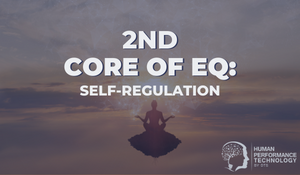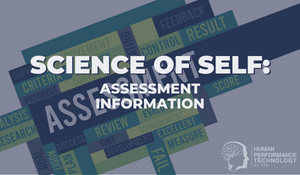Boosting Productivity with Self-Regulation & Self-Awareness
What Is Self-Regulation?
What Is Self-Awareness?
Why Self-Regulation and Self-Awareness Matter for Productivity
- Reducing Workplace Stress: Self-awareness allows employees to identify stressors and understand how their emotions impact their work. Self-regulation helps them manage that stress effectively by pausing, reassessing, and choosing a productive response rather than reacting impulsively. By reducing emotional volatility, employees can remain focused and avoid burnout.
- Improving Focus and Concentration: Distractions and negative emotions can derail productivity. Employees who actively self-regulate are better able to manage their emotions and keep their focus on the task at hand. They avoid letting personal frustrations or external pressures interfere with their work, leading to higher productivity.
- Enhancing Decision-Making: Self-regulation supports clear, rational decision-making. When emotions are in check, employees can assess situations more objectively, leading to better decisions. Self-awareness adds an additional layer by helping individuals understand how their emotions influence their thought processes, allowing them to adjust and make more balanced choices.
- Fostering Better Collaboration: Workplace collaboration often involves navigating different personalities, opinions, and emotional responses. Employees with high self-awareness can recognise how their own feelings affect team dynamics, while those with high social awareness understand the emotions of others and how these influence team interactions. By regulating their emotions, they create an environment where conflicts are minimised, and productive dialogue thrives.
- Increasing Adaptability to Change: Change can be challenging, often evoking anxiety or resistance. Employees with strong self-awareness are more likely to acknowledge these feelings and adjust to new situations with resilience. Self-regulation ensures that they manage their emotional reactions to change, allowing them to adapt quickly without losing productivity.
Practical Strategies to Develop Self-Regulation and Self-Awareness
Encourage Mindfulness and Reflection
Mindfulness practices, such as meditation or reflective journaling, help employees become more aware of their emotional states. By pausing and reflecting on their feelings, they can assess how these emotions are affecting their behaviour and performance. Over time, this practice strengthens self-awareness and fosters self-regulation.
Promote Regular Breaks and Stress-Management Techniques
Short, regular breaks during the workday can help employees reset emotionally, especially when they’re feeling overwhelmed. Stress-management techniques, such as deep breathing or physical exercise, also help regulate emotions, preventing stress from escalating and disrupting productivity.
Encourage Open Dialogue and Feedback
Self-awareness can be enhanced by encouraging employees to communicate openly about how they’re feeling. This might involve fostering a culture where it’s okay to express emotions constructively and providing feedback that helps individuals recognise how their emotions are affecting their work.
Develop Emotional Intelligence Training
Training programs focused on developing emotional intelligence, particularly self-regulation and self-awareness, are valuable investments for organisations. These programs can teach employees how to recognise emotional triggers, manage their responses, and maintain a productive mindset even in stressful situations.
Model Emotional Intelligence in Leadership
Leaders play a crucial role in promoting self-regulation and self-awareness within the workplace. By demonstrating emotional intelligence themselves—staying calm under pressure, making thoughtful decisions, and managing stress—leaders set the tone for their teams and encourage similar behaviours among employees.
How Talent Management Professionals Can Foster Emotional Intelligence
- Integrate Emotional Intelligence Assessments: Start by assessing employees’ emotional intelligence, including their self-regulation and self-awareness levels. This helps identify areas where development is needed and provides a foundation for personalised growth plans.
- Offer Personalised Development Programs: Based on assessment results, offer employees tailored development programs that focus on enhancing their self-regulation and self-awareness. These programs can include one-on-one coaching, group workshops, or online courses that teach practical techniques for managing emotions.
- Encourage a Culture of Emotional Intelligence: Promote a workplace culture where emotional intelligence is valued. This includes encouraging employees to practice mindfulness, express emotions constructively, and regulate their responses during high-stress situations. Recognition and rewards for emotionally intelligent behaviour can reinforce this culture.
- Provide Resources for Stress Management: Offer resources such as employee assistance programs, wellness initiatives, and stress management tools that support emotional regulation. Providing employees with the tools they need to manage stress effectively helps them maintain productivity and well-being.

Trevor O'Sullivan
General Manager. Since the early 2000s, Trevor has worked with thousands of Talent Management professionals to develop and apply assessment-based talent management solutions for selecting, developing and managing people. Trevor is an active member of the TTI Success Insights (TTISI) Global Advisory Council, contributes to TTISI product development and is a regular presenter at TTISI-R3. He is honoured to have received multiple Blue Diamond Awards and, more recently, the Bill Brooks Impact Award recognising his contributions to the TTISI global network.



We Would Like to Hear From You (0 Comments)